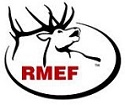 The Rocky Mountain Elk Foundation recognized the U.S. Senate for approving a comprehensive energy package that includes permanent reauthorization of the Land and Water Conservation Fund (LWCF) as well as important provisions that benefit conservation, wildlife, sportsmen and women.
The Rocky Mountain Elk Foundation recognized the U.S. Senate for approving a comprehensive energy package that includes permanent reauthorization of the Land and Water Conservation Fund (LWCF) as well as important provisions that benefit conservation, wildlife, sportsmen and women.
“We are grateful that Senators recognized LWCF is a vital conservation program that warranted permanent reauthorization,” said David Allen, RMEF president and CEO. “Advancing part of the sportsmen package will also help hunters, anglers and shooters who use our federal lands. We are particularly pleased to see the bill also includes a change to the Equal Access to Justice Act, requiring reporting of decisions and awards of attorney fees. This statute has been abused by groups to stop land management projects while collecting attorney fees paid by taxpayers to sue the federal government.”
RMEF remains a longtime advocate for permanent reauthorization of LWCF which uses revenue from offshore oil and gas drilling to support the conservation of America’s lands and waters. It also provides funding to permanently protect and provide public access to important habitat for elk and other wildlife. To date, RMEF utilized more than $85 million in LWCF funding across 62 projects in ten different states in partnership with federal agencies to protect, conserve and open access to some of the nation’s most vital elk country. The 50 year-old program expired last September but was temporarily reauthorized by Congress in December.
The bill also includes several components of the bipartisan sportsmen legislative package passed by House of Representatives in February which directs federal agencies to enhance and increase public access for hunting, fishing and shooting on federal lands.
“While the Senate passed a number of provisions beneficial to sportsmen and women, it missed a tremendous opportunity regarding predator management. The sportsmen package passed by the House included language to restore state management of wolves in Wyoming, Michigan, Minnesota and Wisconsin. There is simply no reason to prevent these states from managing these predators when they are fully recovered and flourishing.”
The Senate’s energy bill will now go to a conference committee where members will iron out differences between the versions passed by the House and Senate.
